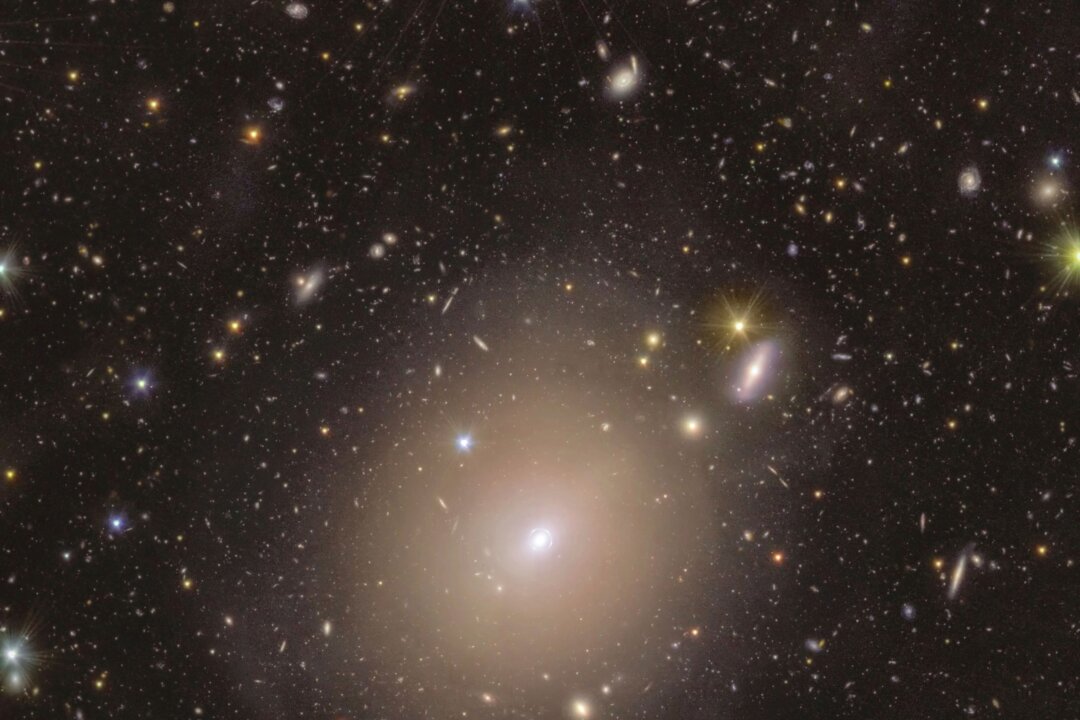Euclid Space Telescope Captures Rare Einstein Ring Around Nearby Galaxy NGC 6505
The Euclid space telescope reveals a stunning Einstein ring encircling galaxy NGC 6505, located 590 million light-years away, showcasing gravitational lensing.
Subscribe to unlock this story
We really don't like cutting you off, but you've reached your monthly limit. At just $5/month, subscriptions are how we keep this project going. Start your free 7-day trial today!
Get StartedHave an account? Sign in
Overview
Europe’s Euclid space telescope has observed a rare Einstein ring surrounding the galaxy NGC 6505, situated 590 million light-years from Earth. The phenomenon, resulting from gravitational lensing, occurs when light from a more distant galaxy, over 4 billion light-years away, bends around a closer object. Lead author Conor O’Riordan highlights both the rarity and the scientific value of such lenses. Euclid, launched in 2023 with NASA's collaboration, aims to study dark energy and dark matter in the universe, providing crucial data for astronomical research.
Report issue

Read both sides in 5 minutes each day
Analysis
Analysis unavailable for this viewpoint.
Articles (3)
Center (2)
History
- This story does not have any previous versions.

